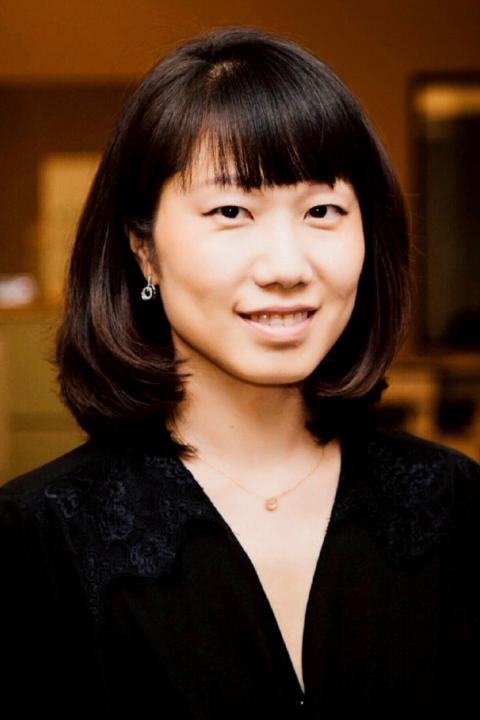
Yoon-Ji Lee
For media inquiries, please contact Media Relations
Yoon-Ji Lee, a South Korean composer currently based in Boston, is a creator of unconventional and non-linear compositions. Marked by a dynamic emphasis on rapid juxtaposition and transformation of disparate elements, her compositions intricately weave together acoustic and electroacoustic mediums while actively embracing interdisciplinary, multimedia, and intercultural influences, delving into themes rooted in contemporary society, history, and culture.
Lee has received numerous fellowships and artist residencies, including the Guggenheim Fellowship, the McKnight/American Composers Forum Visiting Composer Fellowship, the Fromm Foundation Commission, the Mass Cultural Council Artist Fellowship, the Patsy Lu Award from the International Alliance of Women in Music, the Jane Geuting Camp Fellowship from the Virginia Center for the Arts, Yaddo, National Sawdust, VCCA, and Atlantic Center for the Arts, among others. Lee’s music has been performed in Korea and the U.S. by ensembles, including JACK Quartet, International Contemporary Ensemble, Kammerensemble Neue Musik Berlin, Argento Ensemble, Talea Ensemble, MIVOS Quartet, Ensemble MISE-EN, Momenta Quartet, String Noise, Either/Or Ensemble, Lydian String Quartet, and Dinosaur Annex Music Ensemble. Her experimental, intercultural, and multimedia opera, Sunday Supper, was showcased at National Sawdust in 2018, and is currently undergoing further development for a new production featuring three singers and seven performers.
Lee’s artistic mission is to promote fresh insights into humanity and the human experience through the exploration of novel musical forms and innovative approaches to sound. Her work addresses topics such as the Korean “comfort women,” the unsettling identities resulting from migration, and the NYC subway noise as an embodiment of the city’s different cultures. Upcoming engagements include Holding Space: After Great Pain for double bass and multi-channel electronics, commissioned by the Society for Electroacoustic Music in the United States, and Here, a large chamber ensemble piece with multimedia about the histories of Korean American adoptees.
Lee received her Ph.D. from New York University (GSAS), master’s and graduate diploma from New England Conservatory, and a bachelor’s degree from Ewha Womans University. Lee is currently an Associate Professor at Berklee College of Music.
- Premieres by International Contemporary Ensemble (ICE), Argento Ensemble, JACK Quartet, Kammerensemble Neue Musik Berlin, Mivos Quartet, and Talea Ensemble
- Former faculty at New York University
- Artist residencies include Summer Labs at National Sawdust, the Brush Creek Foundation, the Virginia Center for the Creative Arts, and the Atlantic Center for the Arts
- Commissioned by ensemble MISE-EN, Washington Square Contemporary Society, loadbang ensemble, Equilibrium Ensemble, Dinosaur Annex Music Ensemble, and Either/Or Ensemble
- Festivals and conferences include the Society for Electro-Acoustic Music in the United States conference, the New York City Electroacoustic Music Festival, the New Music Miami ISCM Festival, and the MISE-EN 2014 Music Festival
- Presented the paper "Intercultural Listening in Elliott Sharpe’s 'THEN GO,' for P’ansori and 16 Intonarumori" at Society for Ethnomusicology Conference
- Jane Geuting Camp Fellowship, Virginia Center for the Creative Arts
- Patsy Lu Award, the International Alliance for Women in Music
- Residency Fellowship, Atlantic Center for the Arts
- Henry M. MacCracken Fellowship, New York University
